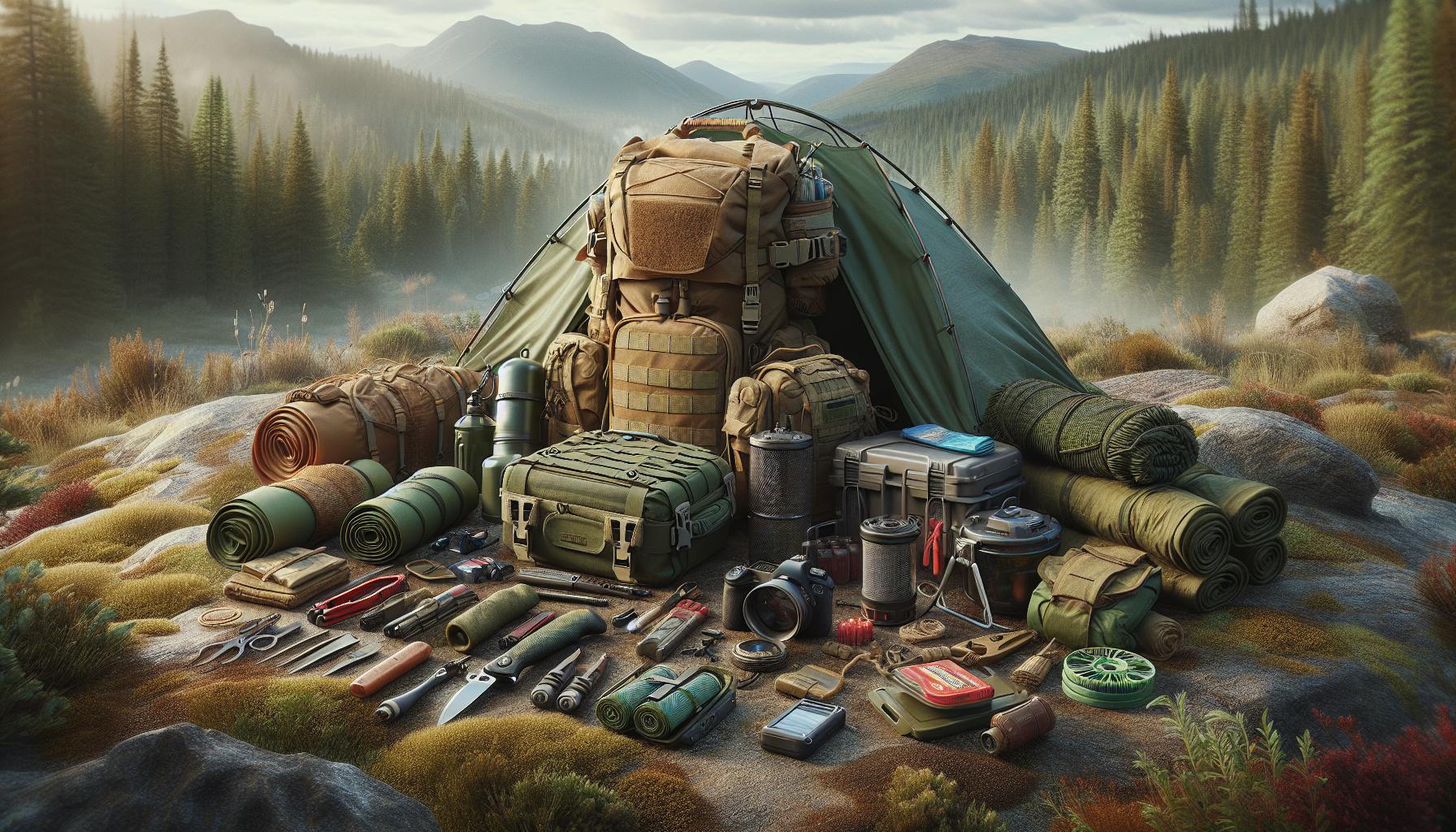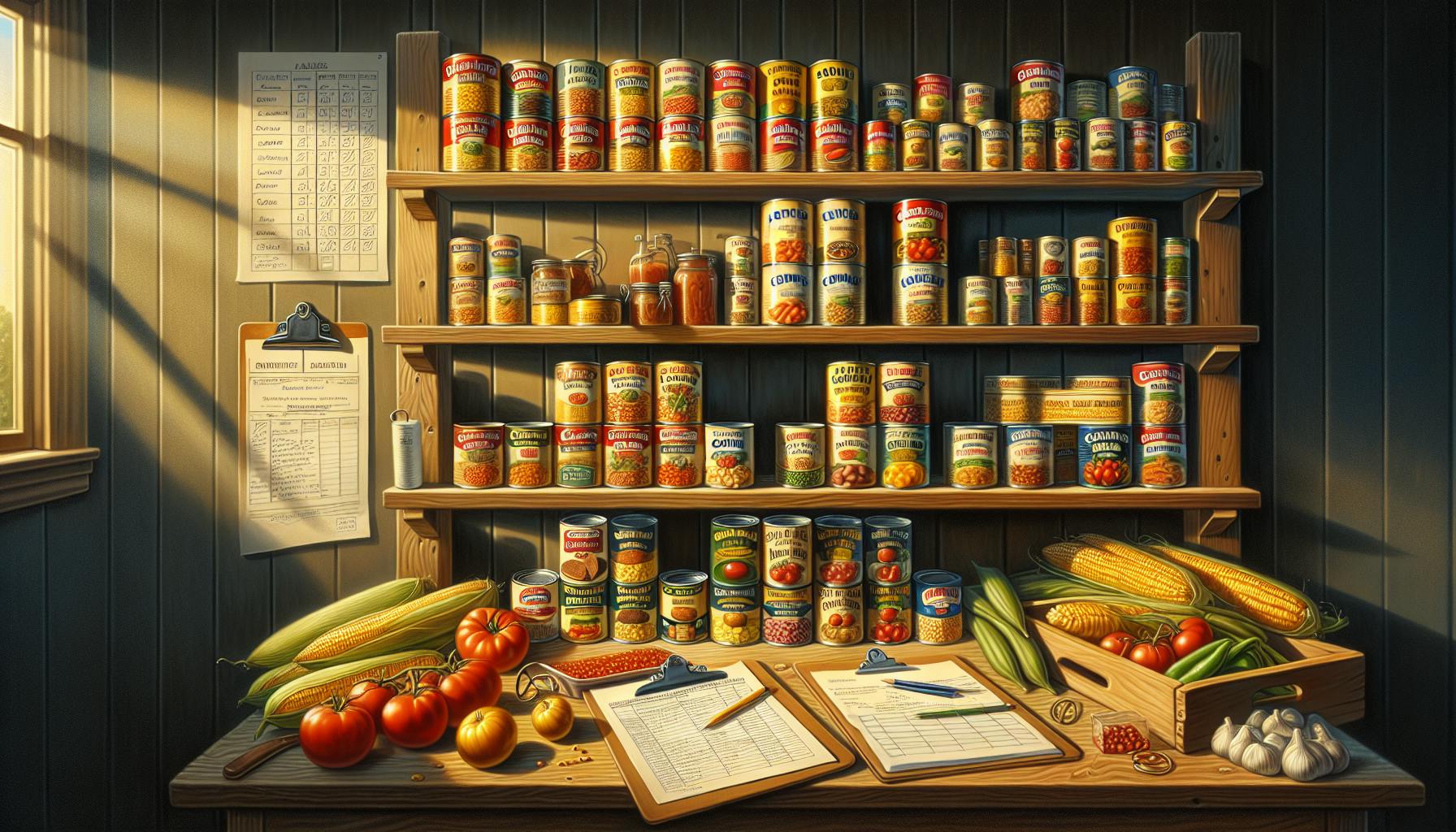Introduction to LDS Prepper Essentials
As Latter-day Saints, we are counseled by church leaders to be self-reliant and prepared for life's emergencies and uncertainties. Developing practical skills, storing food and water, assembling emergency kits, and gaining knowledge are key principles emphasized in preparedness?lang=eng" rel="nofollow" target="_blank">church teachings from the Provident Living website. While we have faith in the Lord's divine help, we must also do our part to provide for ourselves and our families. This comprehensive LDS prepper checklist covers the essentials across all preparedness categories, ensuring you have the supplies and knowledge to feel secure in any situation.
Food & Water Storage
Storing food and water is the foundation of emergency preparedness. Having at least a 3-month supply of food and 1 gallon of water per person per day is recommended, with a mix of shelf-stable staples, freeze-dried meals, canned goods, and other long-lasting options. Rotate your food storage using the FIFO (first-in, first-out) method. Store water in sealed, food-grade containers and rotate every 6 months. Consider expanding your self-reliance with a garden, sprouting seeds, hunting, fishing, and other renewable food sources.
72-Hour Emergency Kits
Portable 72-hour kits should be assembled for each family member. Include food, water, first aid, hygiene items, clothing, tools, and other essentials tailored to each individual's needs. Store kits in an accessible area like a front hall closet, and periodically check contents and replace anything expired or missing. Review this 72-hour emergency kit checklist for recommended items to include. Commercial products like the Emergency Zone Urban Survival Bag also provide ready-made kits. These can provide crucial supplies if evacuation is necessary.
Home Storage & Preparedness
In addition to 72-hour kits, a minimum 2-week supply of water, food, first aid, hygiene items, and other basics should be stored at home. Have at least 2 forms of emergency lighting such as flashlights and battery-powered lanterns. Prepare your home to shelter in place during emergencies by addressing security, power, lighting, cooking, sanitation, and communication needs. Review home insurance policies to ensure adequate disaster coverage. Have emergency cash, copies of important documents physically and digitally, and evacuation go-bags ready. Develop skills like emergency medicine, food preparation, and survival techniques.
Evacuation & Bug Out Considerations
Have an evacuation plan and supplies in case you must leave quickly. This includes a bug out bag with 72-hour essentials, likely destinations and routes identified ahead of time, and extra supplies like fuel, food, water and shelter items to survive away from home. Prepare go-bags for each family member with copies of irreplaceable items like documents, medication, valuables, pets' needs, etc. Scan key documents and save them on a secure cloud account and encrypted USB drive as well.
Security & Self-Defense
Take defensive precautions like home security systems, two-way radios, and basic self-defense items. Consider obtaining firearms for defense after proper training and licensing, taking local laws into account. Develop skills in emergency medicine to treat potential injuries. Building community relationships is also key for establishing security. Get to know neighbors and develop an LDS prepper network in your area.
Key Equipment & Gear for LDS Preppers
Beyond basic survival items, there are certain tools and gear that are particularly useful for preppers to acquire. Focus on quality, reliability, and usability, while avoiding unnecessary gadgets. Keep all equipment maintained and ready for use. Here are some of the most essential categories to consider:
Communications Equipment
Reliable communication can be invaluable in emergencies. Consider an emergency radio like the American Red Cross FRX3 with hand crank charging. Two-way radios are great for short-range communication within a small group. Whistles can be used for signaling. Have extra batteries or a portable power bank to keep devices charged. A HAM radio allows long-range communication if you get licensed.
Lighting & Power Options
Prepper lighting options include LED flashlights, headlamps, solar-powered lanterns and phone chargers, candles, matches and lighters. A portable power station like the Jackery Explorer 300 can provide electricity on the go. A battery or crank-powered weather radio provides news without grid power.
Cooking & Water Equipment
Choose reliable camping stoves that use common fuel sources like propane or white gas. Examples are the Coleman Classic Stove or MSR Whisperlite. Have pots, pans, utensils, manual can openers, and mess kits for each person. Water purification methods include Sawyer filters, boiling, or distilling. Store water in large containers and barrels.
First Aid & Sanitation Supplies
Stock various first aid kits and include OTC medications, prescriptions, feminine products, toilet paper, cleaning supplies, sanitizer, disinfectants, and anything else needed for health and hygiene. Proper sanitation prevents illness.
Tools & Repair Items
Useful items include Leatherman multi-tools, Morakniv knives, axes, folding saws, work gloves, safety goggles, a basic toolkit, duct tape, tarps, rope, and spare parts like belts and fuses. These allow you to construct, repair, and maintain your equipment and shelter.
Key Knowledge & Skills for LDS Preppers
Physical supplies provide the material foundation, but knowledge and skills make preparedness possible. Develop these competencies now through study and practice. Spiritual preparation is also key.
Emergency Medical Skills
Take first aid and CPR training from organizations like the American Red Cross. Study natural medicine and how to treat injuries. Obtain medical references like the book Where There Is No Doctor. Routinely refresh your skills.
Food Preparation & Preservation
Learn long-term storage, drying, smoking, curing, canning, sprouting, and cooking from storage. Books like Stocking Up provide guidance for beginners. Identify wild edible and medicinal plants. Consider gardening and farming skills.
Wilderness Survival Skills
Learn skills like fire starting, shelter building, navigation, and natural tool making. Study edible plants, hunting, fishing, and trapping. Take wilderness survival training courses offered by groups like the National Outdoor Leadership School.
Spiritual Preparation
Deepen your testimony with scripture study, prayer, and church activity. Draw nearer to Christ. Develop relationships with ministering brothers. Keep the commandments.
Community Building & Leadership
Get to know neighbors, develop an LDS prepper network, and discover ways to serve the community. Build skills to lead, organize, and teach preparedness principles to others. Consider organizing a neighborhood emergency plan.
Final Thoughts
This comprehensive lds prepper list provides a thorough checklist of supplies, prepper gear, skills, and knowledge to guide your preparedness efforts. As we heed prophetic guidance to become self-reliant, both spiritual and physical preparation will lead to greater peace and security, despite life's uncertainties. Begin your journey today, take it one step at a time, and you will be blessed for following this inspired counsel.


